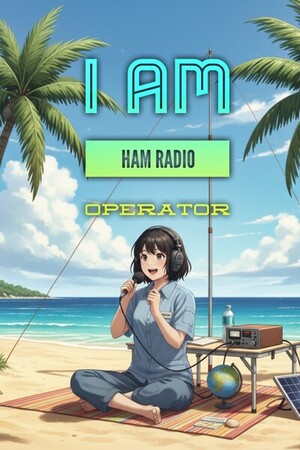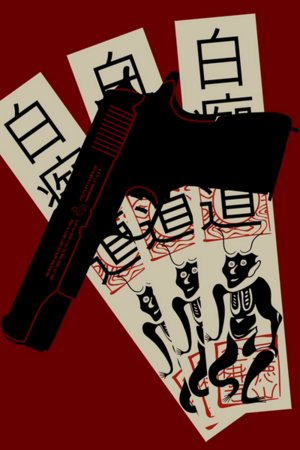Chapter 22:
Chapter 22: The Static of Envy
I am Ham Radio Operator
Our success does not go unnoticed. In the global ham radio community, our callsign W1Z is becoming synonymous with youthful energy and technical skill. We publish articles about our SDR project in ham radio magazines, and Samuel and Doretha present their work at virtual club meetings around the country. We are seen as part of the future of the hobby. But back home, in our own local community, a different kind of signal is starting to emerge. It is not a clear, friendly transmission, but a low, ugly hiss of static just beneath the surface.
It starts subtly. There is a small but vocal group of older operators in our local club who have been around for decades. They are the "sad-hams," as Doretha privately calls them. They are the ones who complain that the hobby is not what it used to be, that computers have ruined everything, and that "kids these days" have no respect for tradition. They see our success not as something to be celebrated, but as a threat.
The first sign of trouble comes during the weekly repeater net. When I check in from my college dorm, one of them, a guy named Bob whose callsign I have seen in logs for years but have never spoken to, makes a snide comment. "Oh, look, it is the big-shot contest team, gracing us with their presence. I guess you are not too busy to talk to us little guys today."
I am stunned into silence. The net controller quickly moves on, but the comment hangs in the air, a drop of poison in our community well. After the net, Doretha calls me, furious. "Can you believe that guy? What is his problem?"
His problem, as we soon discover, is jealousy. He and his friends see us as arrogant kids who have not "paid our dues." They resent our use of technology, our focus on competition, and the attention we are receiving. They believe ham radio should be about long, slow conversations about the weather and grandkids, not about maximizing your contact rate per hour.
The static grows louder. During the next state-level contest, we are operating as W1Z from Gregory's shack. We are on a great run, holding a frequency on the 20-meter band, when a local station suddenly starts transmitting directly on top of us. It is not just accidental interference; it is deliberate. He is calling CQ over and over, his signal strong enough to completely block out the weaker stations we are trying to contact. The callsign is one of Bob’s friends.
Samuel is livid. "This is outrageous! It is a violation of FCC rules! He is doing it on purpose!"
Gregory, ever the calm voice of reason, keys the mic. "Friend, you are transmitting on an occupied frequency. We would appreciate it if you would please move."
The response is a blast of static and then the other operator starts whistling into his microphone, an obnoxious, piercing sound designed to be as disruptive as possible. We are forced to abandon the frequency and find a new one, losing valuable time and points. It is a petty, childish act of sabotage, but it is effective. It throws us off our rhythm and leaves a sour taste in our mouths.
The attacks become more personal. An anonymous blog post appears online, accusing the W1Z team of using illegal power levels and automated, "robotic" software to cheat in contests. The accusations are baseless, pure fiction, but they are written with an air of authority that makes them sound plausible to those who do not know us. The post is shared on local ham radio social media pages, and suddenly we are on the defensive. We have to waste time and energy refuting lies instead of focusing on the hobby we love.
The worst of it is directed at me. Perhaps because I am the most visible remote member, or perhaps just because I am a young woman in a traditionally male-dominated hobby, I become a particular target. On a popular online forum for DXing, a thread is started that questions the legitimacy of my Amateur Extra license. "How does a teenage girl get a perfect score on the hardest exam in the hobby?" one anonymous poster writes. "Something smells fishy. I bet one of her Elmer friends took the test for her."
The accusation is a knife to the heart. It cheapens the hardest thing I have ever worked for. I post a reply, explaining the months of intense study, but it is like shouting into the wind. The anonymous trolls have already made up their minds. More posts appear, filled with sexist innuendos and personal attacks. They question my technical skills, my motivations, my very right to be on the air.
I try to ignore it. I try to tell myself that these are just a few sad, bitter people. But their voices, their static, begin to seep into my head. I start to second-guess myself. When I get on the air, I feel a knot of anxiety in my stomach. Is someone listening, judging me? Are they going to try to interfere with me? The joy and freedom I once felt are being replaced by fear and self-doubt. The radio, my sanctuary, is starting to feel like a hostile place. The sad-hams are not just interfering with our signal; they are trying to jam the very frequency of my own self-worth.




Please sign in to leave a comment.